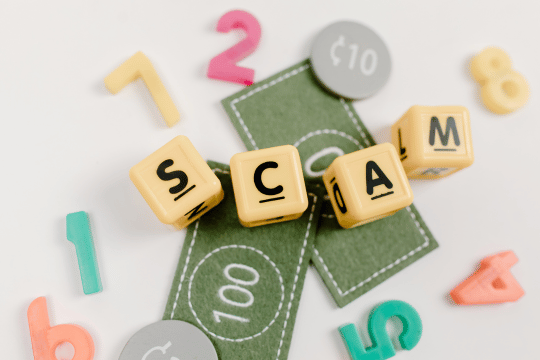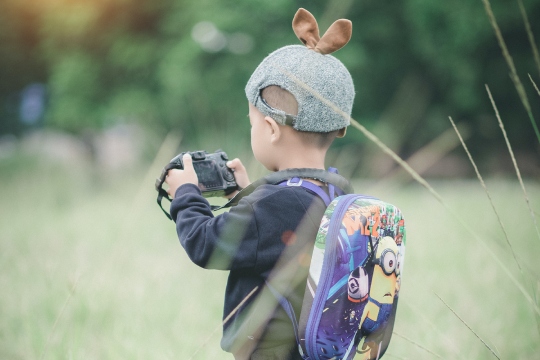“hey we’re not allowed to go in there”
“it’s gonna be fine, stop overthinking”
“what if we get caught?”
“don’t be such a sissy, no one’s here. i told them not to let you come. now stop being a spoilsport and let’s go”
“oh okay, fine let’s go”
this is just a small instance of a person crumbling under peer pressure. it’s not the thrill or the adrenaline that forced the person to do something they didn’t want to. instead, it was the fear of being looked down upon. however, peer pressure in adolescence does not always have to be a negative influence. there are peers who imbibe positive peer pressure by pushing their friends harder to be better.
but first, let us look at some signs of peer pressure that you can notice in your child’s behaviour and further help your kids to deal with peer pressure. it could be negative peer pressure or positive, but these are the changes that you must look out for:
signs and effects of peer pressure and how to deal with it.
- signs of peer pressure
- effects of positive peer pressure
- effects of negative peer pressure
- cause of peer pressure
- how to deal with peer pressure
signs of peer pressure

1. adopting a new habit that they never had
these new habits could be positive changes like waking up early, reading a book or general lifestyle changes like dressing style. however, negative habits could include smoking, drug or alcohol consumption.
2. imitating their friends’ habits and lifestyle
under peer pressure, teens and adolescents tend to pick up their friends’ habits and lifestyle to fit in. this gives them a feeling of being accepted and building a status quo.
3. suddenly being rebellious or nonchalant about certain things
this behaviour trait is a major red flag. when a child is suddenly hostile and doesn’t care about things they used to, it means things are changing in their thought process and beliefs.
4. change in their tone when they talk
expressions can be masked alright, but the tone always sets the context. pay attention to your child’s tone when they speak. is it different? does it sound too frustrated and impatient as compared to before?
5. being secretive about everything
an adolescent or teen needs privacy after a certain point and that’s okay. but being extra secretive about everything should cause suspicion. don’t invade their privacy, but be mindful of their communication.
like we said earlier, there are different types of peer pressure which are positive and negative. to term them better, we can call it to peer influence and peer pressure respectively.
peer influence refers to actions that empower your kid to get influenced positively and makes their life better. whereas peer pressure can be defined as actions that the kid does not want to do, but does out of sheer force.
effects of positive peer pressure

but let’s not confuse negative peer pressure with positive effects of peer pressure. let us look at some positive effects of peer pressure or peer influence:
1. long-lasting friendships
peers who positively impact your child’s life and vice versa go a long way. they grow together and face challenges by supporting each other. they want the best for their friends and motivate them to succeed in every aspect of life.
2. pure intentions
a peer influence will ensure to tell your kid what is right and what is wrong for them with pure intentions. however bitter the truth may be, they will be upfront about it. be it a haircut, a boyfriend or their behaviour. they will have no selfish motives or gain other than seeing their friend grow up to their true potential.
3. gaining new experiences
only a true friend will motivate you to get out of your comfort zone. they will be the ones encouraging your kid to participate in activities and experiences that will only develop your kid’s dynamic personality. those peers will inspire your teens to build the best version for themselves.
4. trust
as a parent, you can trust your kid with their true friends. you won’t have to worry about your child falling into some wrong habits. your child will have a friend to confide in without feeling lonely or stuck in a difficult situation. not everything can be shared with parents and that is okay as long your child is not alone.
effects of negative peer pressure

now looking at the effects of negative peer pressure, they are not always evident, but the signs clearly are. do not ignore these red flags that you will come across in your child. some of these warning signs are:
- restlessness and hostile behaviour
- depression and mood swings
- back answering and disrespectful behaviour
- disinterest in school and college life
- being distant from family members
main causes of peer pressure

these are not all, but the basic ones. signs and effects may differ from child to child based on their nature. as parents, what you need to understand are the causes of peer pressure. why does your kid, who may be a teen or adolescent, fall for peer pressure? the causes could be simple things like:
- lack of self-confidence
- the fear of being a loner or an outcast
- fear of not being good enough
- comparing themselves to others
- unrealistic aspirations
how to deal with peer pressure

peer pressure in adolescence can also just be a phase, but it could mould the kid into something that they are not. you need to know the right ways to deal with peer pressure in a manner that does not cause friction between you and your kid. these ways to stop peer pressure are:
1. keep an open mind
as parents, there are several things you are worried about when it comes to your kids. be it friends, studies, lifestyle etc. you need to understand first and then react later. learn how to be cool parents to your kids, keep your home an open space for your kids to invite their friends over – girls and boys – so you can learn about their friends and know who your child hangs out with.
this does not in any way imply that you can tell your kid who they can be friends with and with whom not. this is just for you to be aware of the kind of company your child has and how it can be improved if and only if it is absolutely necessary.
2. open and safe communication
the young generation today have very different ideologies than what you did when you were young. you cannot expect them to be the same. understand that the youngsters are very progressive these days and hold strong opinions. stay connected with your kids when they enter their teens, it’s time to start being a little unorthodox and open-minded. listen to them and their opinions and have healthy discussions rather than shoving your experiences down their throat.
be more accepting with your kids and connect with them on a friendly level. this will give them the confidence to talk to you about anything and share their problems with you. gain their confidence and trust as a parent.
3. encourage socializing
push your kids to socialize more by joining clubs, sports activities or any other activities that will have them interact with more people and make friends. it is not always possible for a kid to have friends who are a positive influence. but as parents, you can deal with this by ensuring your kid has friends whom he can turn to when they are on the wrong path. a person surrounded by positivity cannot be phased by minute negativity. this will also help you to raise confident children who can then help other teens to overcome peer pressure.
4. be their way out of risky situations
it is not always practically possible to be your kid’s best friend. but you can be that person for your teens and adolescents whom they can confide in and call out for help in any given situation. gain their confidence that they can reach out to you for help for anything and everything without being scared.
you should be their knight in shining armour. this can be done by being empathic towards their situations and talking it out rather than yelling. being strict does not discipline the kids, rather it makes them rebellious and hostile. provide them with a safe space to share their issues with you without being worried about the consequences and judgements.
5. make them realize that saying no is not wrong
at a tender age where kids are so influenced by external factors like social media and peers, they are easily pressured into doing things they don’t want to. most of the time they do it to sustain their cool façade in front of their friends. but you as a parent need to teach your kids how to be self-assured and comfortably say no without being too crass and rude. standing by their values is what kids need to learn today.
for example, if your kids are being forced to smoke by their friends, they can simply say “sorry, but i don’t like how the smell of smoke stays on me” or “i don’t want to smoke as i don’t feel like it and it gives me a headache”. genuine friends would respect their decision and move on. but peer pressuring friends would just force them further. equip your kids to understand this difference and make a decision to distance themselves from such friends.
resisting negative peer pressure is not always easy, but it is not impossible. give your teens and adolescents the courage to stand up for themselves and choose the right path. work on your relationship with your child and pay attention to their social life, but don’t be too interfering.
if you think your child is facing mental health problems due to such peer pressures, do not hesitate to reach out for a professional’s or well-wisher’s help. act before it gets too late. be their knight in shining armour that they believe you to be.











